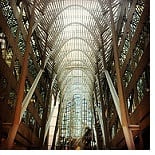 The Tax Cuts and Jobs Act (the Act) made several changes to the rules regarding the deduction of business meals and entertainment. This summary is provided to assist you in understanding these rules and to furnish guidance for maintaining your business books and records. The information in this summary is current as of January 22, 2019.
The Tax Cuts and Jobs Act (the Act) made several changes to the rules regarding the deduction of business meals and entertainment. This summary is provided to assist you in understanding these rules and to furnish guidance for maintaining your business books and records. The information in this summary is current as of January 22, 2019.
It must be mentioned up front that no deduction will be allowed unless (1) it is considered to be an ordinary and necessary expense of the business and (2) it is not lavish or extravagant.
Business Entertainment
Under the Act, entertainment expenses are no longer deductible. “Entertainment” includes any type of amusement or recreation such as entertaining at clubs, theaters, country clubs, golf and athletic clubs, sporting events, and hunting, fishing or vacation trips, etc. It may also include the payment of certain personal living expenses such as providing food and beverage, hotel rooms, or an automobile to a business customer. The following recreational activity expenses, INCLUDING related food and beverages, are not disallowed under the new rules and can be fully deducted:
- Expenses included in employee compensation or income of nonemployees (subject to substantiation rules)
- Reimbursed under agreement
- Entertainment expenses directly related to business meetings for employees, stockholders, agents, or directors are fully deductible (but only 50% of the related food and beverage cost is deductible)
- Entertainment expenses directly related to attending a business meeting or conference of a tax-exempt organization are fully deductible (but only 50% of the related food and beverage cost is deductible)
- Those provided as recreational or social activities primarily for employees (except for officers, 10% owners, and certain highly compensated employees)
- Those provided to the general public or sold to customers
Business Meals
For now, businesses can continue to deduct 50% of allowable business meals, but only if all 5 of the following criteria are met:
- The expense is ordinary and necessary in carrying on a trade or business,
- The expense is not lavish or extravagant under the circumstances,
- The taxpayer, or an employee of the taxpayer, is present at the furnishing of the food or beverages,
- The food or beverages are provided to a current or potential business customer, client, consultant, or similar business contact, and
- In the case of food and beverages provided during or at an entertainment activity, the food and beverages are purchased separately from the entertainment, or the cost is stated separately from the cost of the entertainment on one or more bills, invoices, or receipts. The rule cannot be circumvented by inflating the amount charged for the food and beverages.
EXAMPLE: You invite a business contact to a basketball game and also purchase food and beverages for the business contact which are stated on a separate receipt from the tickets. The cost of the tickets is not deductible since that is an entertainment expense, but 50% of the cost of the food and beverages is deductible.
Meals Provided to Employees
The Act, along with regulatory and legislative history, permit certain employer-provided meals for its employees to be 50% deductible. These expenses can be broken into two categories:
50% Food and Beverage Deduction – In General
- Food and beverages considered a de minimis fringe benefit, such as coffee and doughnuts, for which the accounting is impractical.
- Client business meals
- Business meals while traveling
- Meals related to business meetings for employees, stockholders, agents, or directors
- Meals directly related to attendance of a business meeting or convention of a tax-exempt organization such as trade boards, chambers of commerce, real estate boards, etc.
50% Food and Beverage Deduction Allowed Only Through 2025
- Food and beverages provided to employees for the “convenience of the employer,” which is defined as the carrying out of the employee’s duties in compliance with the employer’s policies for that employee’s position which require that the employer provide the employee meals in order for the employee to properly discharge their duties.
- Food and beverages provided at an on-premises, employer-operated eating facility and considered a de minimis fringe benefit.
Finally, we cannot emphasize enough the importance of maintaining adequate books and records to support any business meal or permitted entertainment deduction claimed for tax purposes. Along with detailed documentation to support the deduction, we recommend (at a minimum) that the following accounts be maintained:
- Business Meals – 50%
- Employee Meals – 50%
- Business Entertainment/Meals – 100%
- Business Entertainment – Non-Deductible
If you have any questions or need assistance with implementing the above, please contact us at 302.225.0600 or info@belfint.com.
Photo by Irina Souiki (License)
